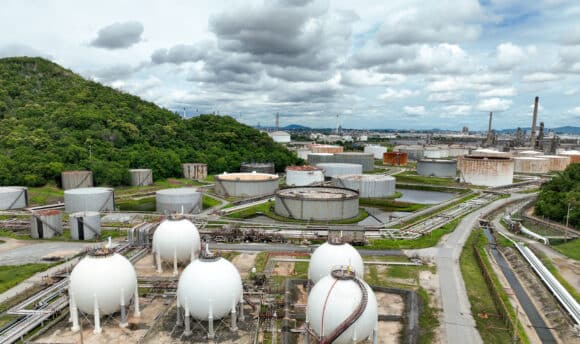Policy demonstrates major movement among U.S. insurers on coal and early movement on tar sands; Travelers is 6th North American company to restrict underwriting for coal and 3rd for tar sands
HARTFORD, CT (February 7, 2022)—Insurance giant Travelers adopted a policy committing to not underwrite new coal-fired power plants. It also committed not to underwrite new policies for or make new investments in companies that generate more than 30% of their revenue or energy production from coal or have more than 30% of their reserves in tar sands. It will phase out existing relationships that exceed these thresholds by 2030. (Note: for a detailed analysis of the policy, see Insure Our Future’s Analysis of Travelers’ Climate Commitments).
“Adopting a coal and tar sand exclusion policy is a notable first step from Travelers. The insurance industry is being forced to wake up to the threat posed by climate change, and to its role and responsibilities. There is real momentum now for insurance companies in the U.S. to align their policies with climate science and end support for new fossil fuels,” said Connecticut Citizen Action Group Executive Director Tom Swan.
Travelers was one of the last major insurance companies left in the world without any restrictions on coal underwriting. It now joins a growing list of at least 35 insurers globally that have ended or limited their coverage for coal projects, including all major European and most Asian insurers. It is the 3rd North American insurer and 14th overall to restrict insurance for the tar sands oil sector.
“Travelers’ decision to rule out tar sands insurance is a further indication that insurance companies are increasingly recognizing the high risk profile and significant reputational risks that come with insuring this outdated, dangerous and highly polluting industry. Tar sands have had devastating impacts on our drinking water, air, Indigenous rights, and our shared climate. The door closing on tar sands would be a major win for impacted communities like mine,” said Melina Laboucan-Massimo, Lubicon Cree from the Alberta tar sands and Just Transition Director, Indigenous Climate Action.
Travelers’ announcement will increase the pressure on AIG and Berkshire Hathaway to rule out coal, as they are the two remaining major U.S. insurers with no restrictions on underwriting coal; as well as on Chubb and Liberty Mutual to include tar sands in the scope of their fossil fuel restrictions.
“Travelers’ announcement further isolates AIG as one of the last insurers willing to provide coverage for coal and tar sands. AIG’s CEO Peter Zaffino has yet to take the steps needed to restrict the company’s coverage for and investments in the industries destroying our planet. AIG needs to get with the climate program and stop insuring coal, tar sands, and all fossil fuel projects,” said Hannah Saggau, insurance campaigner with Public Citizen.
“While we welcome Travelers’ updated climate commitments, the policy has significant loopholes and falls well below the standard set by leading European insurers. Travelers does not rule out support for all companies that are developing new coal and tar sands projects that the climate cannot afford. Furthermore, it leaves the door open for the insurer to renew existing coal and tar sands insurance contracts until 2030. The time to act is now, not in eight years,” said Samantha Dynowski, Director at Sierra Club Connecticut Chapter.
The policy also fails to address Travelers’ ongoing insurance and investments in conventional oil and gas expansion: it is one of the top 3 insurers of oil and gas companies worldwide, and has not yet ruled out insuring oil and gas drilling in the fragile Arctic National Wildlife Refuge, which is sacred to the Gwich’in and other Indigenous Peoples in the region. There has been widespread corporate commitment to not finance or insure such harmful development.
The International Energy Agency (IEA) concluded that there is no room for any fossil fuel expansion in a 1.5°C pathway, while the 2021 Production Gap report makes clear that oil and gas production globally needs to drop by 3-4% annually. As society’s risk managers, insurers have an obligation to help avoid climate breakdown–and the power to help drive the transition to clean energy.
***
Insure Our Future in the U.S. is a campaign comprising environmental, consumer protection, and grassroots organizations holding the U.S. insurance industry accountable for its role in the climate crisis. We are part of the global Insure Our Future campaign, which calls on insurance companies to immediately stop insuring new fossil fuels and phase out support for existing coal, oil and gas projects.



